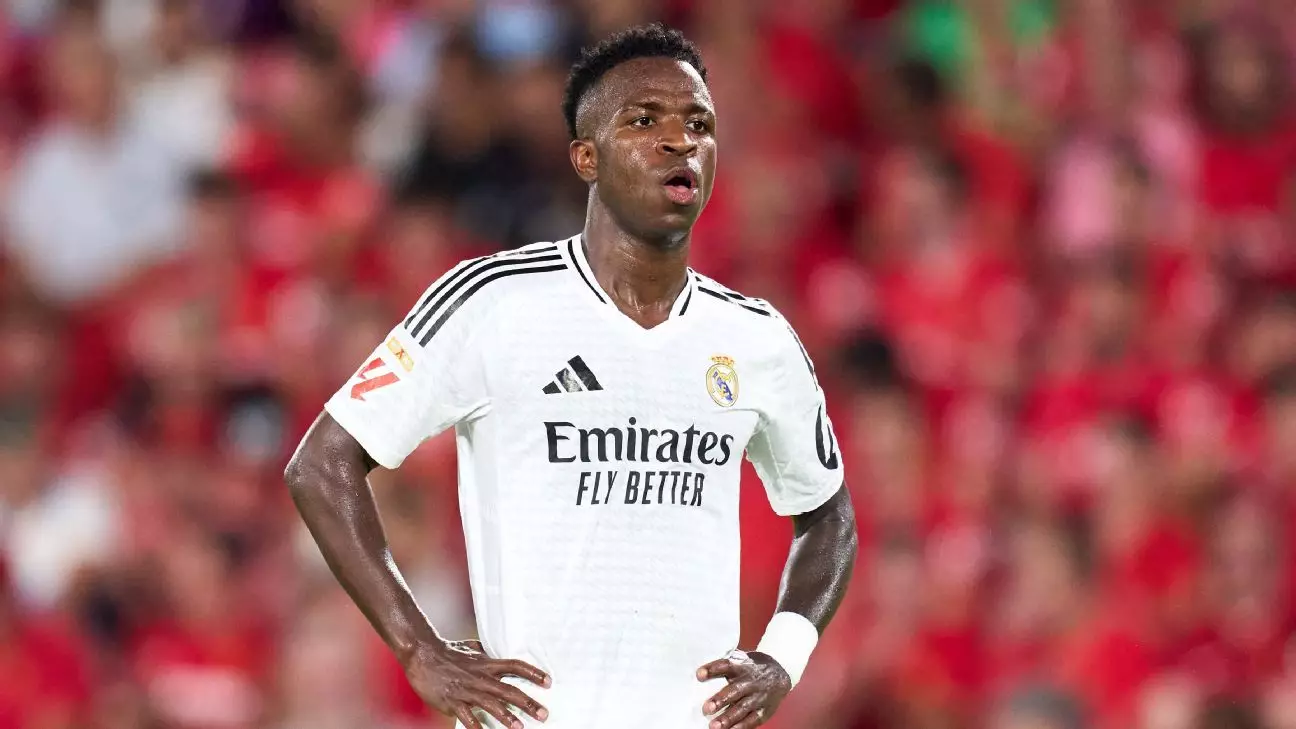Racism remains an alarming issue within the realm of sports, particularly football, which has a global audience. The recent legal proceedings involving a Mallorca supporter who directed racist insults towards Real Madrid’s Vinícius Júnior and Villarreal’s Samuel Chukwueze shed light on this pervasive problem. Despite progressive steps towards accountability, incidents like this continue to underscore the need for systemic change within the sport.
In February 2023, a Mallorca supporter was sentenced to a year-long suspended jail term after being convicted of racially motivated abuse during a match. This judicial outcome, however, raised important questions about the efficacy of such penalties. While the individual faced a ban from all stadiums in Spain for three years and was required to attend an anti-discrimination program, one must wonder if these measures truly serve as a deterrent or simply scratch the surface of a much deeper issue.
The defendant’s apology and expression of remorse are encouraging but may not hold sufficient weight in preventing similar future offenses. The question remains: Will such individual reprimands catalyze a broader cultural shift, or will they remain isolated incidents within a structure that often downplays the responsibility of fans and organizations alike?
LaLiga, along with Real Madrid and Villarreal, initiated the lawsuit that led to this sentencing, highlighting the collective stance against racism in football. Their commitment reflects a growing recognition that sports organizations must leverage their influence to fight discrimination. Real Madrid emphasized that this ruling marks the third conviction in recent times stemming from racist abuse aimed specifically at their players, indicating a troubling trend that requires urgent intervention.
The fight against racism in football is not just a battle for the players but for the integrity of the sport as a whole. Vinícius has become an emblematic figure in this battle, vocalizing his experiences with racial abuse. His emotional response during a press conference earlier this year echoed the anguish felt by many athletes of color, shedding light on the intimate toll that such actions can exact on individuals.
Collectively, these incidents highlight a critical need for deeper cultural reforms that extend beyond punitive measures. While the legal consequences for racism in sports are necessary, they are not sufficient in isolation. Educational initiatives that foster empathy and understanding among fans, players, and clubs alike should be a foundation for change. Additionally, partnerships with community organizations focused on social justice can further this imperative.
As we witness ongoing incidents of racism, it is imperative that football, as a microcosm of society, reflects on its values. Ensuring equal treatment, respect, and dignity for all players, regardless of their background, must move to the forefront of this discourse. The actions taken today lay the groundwork for a more inclusive future in the world of sports, where no athlete has to confront the ugliness of racial abuse.

